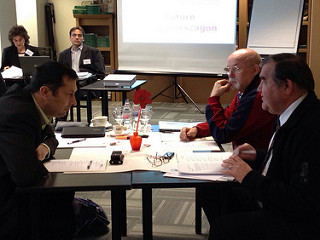
The effectiveness of market research is closely tied to the quality of customer input. Whether it’s surveys or focus groups – online, face-to-face, or over the phone – customer feedback provides the most-valuable information.
It’s understandable d why companies try to determine ROI for market research. If research doesn’t positively impact the bottom line, then it shouldn’t be done. But calculating ROI for market research can be tricky, and using traditional ROI measurements can miss the full picture.
Main Reason for Market Research
The principal reason for market research is to avoid making costly mistakes. If market research is effectively used, its impact can occur so early in an initiative that it’s difficult to determine how much money was actually saved by not making a disastrous decision to go forward. The question, “How much profit can be generated by this expenditure?” is important, but often market research’s greatest value lies in risk avoidance, which is much harder to quantify than profit generation.
Risk management is often one of the several processes included in your contract management system. Think of market research as part of due diligence to account for all possible risks associated with a contractual relationship.
And in a case where customer market research points the direction to a successful business decision, the timetable to determine this success is often so long that it’s hard to measure. Therefore, for specific, short-term research objectives, ROI is a valid indicator of the study’s value, but for long-term objectives such as creating brand advocacy, traditional ROI becomes less accurate.
Evaluating Use of Market Research
In general, the greater the potential impact of a decision, the greater the need for market research to help make that decision. Even if you believe you already know the answer, if the stakes are high, it pays to do market research to confirm your instincts.
For small decisions, going “on your gut” rather than paying for market research may be the best course. But the larger the cost associated with that decision, the larger the risk and the more justification for research. And it’s not just direct financial impact that should be considered; costs to reputation for a wrong decision can also be considerable.
To leave the guesswork out of this process, provide an analytical framework within the library of your contract management software for your managers to evaluate whether or not to request a market research study.
Of course to get the most out of your buck, you need to follow accepted best practices for market research. Here are two of them.
Seek Input from People Who Are or Could Be Customers
In this sense, “customer” doesn’t only mean an existing customer; it also refers to a prospective customer. Sometimes the feedback you want is from prospects because they have all the characteristics of your target customers, but they’re not yet customers. Why not? What would entice them to become customers? The answers to those questions will have great value.
But there’s little value in asking questions of someone who is very unlikely – no matter what you do – to ever buy the service or product that’s being tested with the research.
Preexisting Lists Help Ensure the Right People Participate
Customer and prospect lists significantly aid recruiting. With these lists, we can be sure to get only existing customers if that’s desired or we can expand to include or focus on people who have strong potential to become customers. This will give you the most-relevant data – quantitative and/or qualitative. Because customers obviously drive business success, the opinions and perceptions of customers and legitimate prospects are the ones that matter, so that’s who should participate.
Using customer and prospect lists also lowers the cost of recruiting, and therefore the fee for the project. But if you don’t have these lists, we still have methods to identify prospects so you can get relevant input. Or prospect lists can be bought or developed in house, which also has sales benefits.
Takeaway
If you want to know what customers think, you need to ask them, not someone else. In market research, therefore, focusing on customers is the logical and most cost-effective approach toward getting the input you need.
Think of market research as insurance. It can keep you from losing a lot. It’s perfectly reasonable to expect demonstrable results from market research, but short-term ROI often fails to reveal how beneficial it truly is in preventing mistakes that would cost far more than the research.


